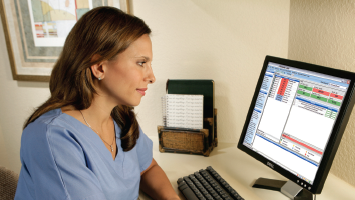Remote Patient Monitoring (RPM) has revolutionized healthcare delivery, allowing patients to receive care from the comfort of their homes. With this technology, healthcare providers can remotely track and oversee patient health, improve patient outcomes, reduce hospital admissions, and cut medical costs. For example, research shows RPM significantly reduces hospitalizations and emergency department visits. Clinicians can choose between standalone RPM software-as-a-service (SaaS) and programs supported by clinical monitoring services.
How Professionally Monitored RPM Services Work
Remote patient monitoring software connects with patients’ wireless health monitoring devices at home. These devices measure vital signs such as blood pressure, blood glucose, oxygen levels, and heart rate and track symptoms, medication adherence, and other health indicators. The devices connect to a secure cloud-based platform that collects patients’ health data in real time and transmits it to healthcare professionals via a secure, web-based portal.
Read: The Importance of Cybersecurity in Protecting Patient (Data) Safety
Companies delivering RPM services go a step further, using trained nurses to monitor the system collecting patient health data. The nurses identify patterns in patient data and make clinical judgments about the best course of action for each person. They provide timely interventions such as issuing medication reminders or advising patients on managing their symptoms. Professional monitoring gives patients personalized care, leading to better outcomes. Using trained nurses reduces the risk of medical errors, helps patients adhere to their treatment plans, and ensures they get alerts and support to help them stay on track with their health goals.
Benefits of Professionally Monitored RPM Services
In addition to the value patients get, providers also benefit by contracting with professionally monitored RPM services in the following ways:
Less Training Requirements
Effective use of remote patient monitoring software requires healthcare providers to have a certain level of training. They need to be proficient in using the software, interpreting patient data, and making informed clinical decisions based on that data. However, the training requirements can be extensive, and some healthcare organizations may not have the resources to provide this training to their staff.
Read: Healthcare Employee Training: What’s It Really Costing Us?
This is where an RPM clinical service provider can help. RPM service providers have trained professionals who are already skilled in using the software, interpreting patient data, and making clinical judgments. By outsourcing RPM services to a provider, healthcare organizations can eliminate the need for extensive training and still benefit from the advantages of RPM technology.
This means healthcare organizations can save the time and money they would spend equipping their own staff for monitoring. By partnering with an RPM clinical service provider, healthcare organizations can take advantage of RPM technology without investing significant time and resources in training.
Better Data Management
Managing the RPM data generated by health monitoring devices can be challenging, particularly when organizations must deal with large volumes of healthcare data from multiple patients. The data must be stored securely and accurately, and providers must be able to access it quickly and efficiently when making clinical decisions.
Read: Big Data Healthcare Global Market Report 2022
RPM clinical service providers can help overcome these challenges by providing better data management services. Remetric Health has the necessary infrastructure and expertise to manage patient data effectively and ensure it is stored securely and accurately. We can also analyze data more efficiently, identifying patterns and trends that may be missed by healthcare organizations managing the data themselves.
By using an RPM clinical service provider, healthcare organizations can ensure they are getting the most accurate and up-to-date information about their patients. Additionally, professional management of RPM data can help improve the efficiency of healthcare organizations, allowing them to make better clinical decisions, spend less time managing data, and more time providing patient care.
Read: Do you spend more time on administrative tasks than your peers?
Faster Response Time for Patient Issues
One of the key benefits of using an RPM clinical service provider is the faster response time for patient issues. Delayed responses to patient issues can have significant consequences, including increased hospital admissions and readmissions, reduced patient satisfaction, and even negative impacts on patient outcomes.
By using a remote patient monitoring clinical service provider, healthcare organizations can mitigate these consequences by ensuring they address patient issues quickly and efficiently. Trained healthcare professionals monitor the data in real time, and they can identify potential concerns quickly and take appropriate action. This can help prevent minor problems from worsening and requiring more extensive interventions.
For example, if a patient’s home health monitor indicates they are experiencing a medical emergency, a healthcare professional can contact the patient immediately and provide guidance on the appropriate actions to take. In some instances, healthcare professionals can even intervene before the patient realizes there is a problem, preventing more severe complications from developing, and relieving some of the financial burden on the healthcare system.
Read: How Much Does the United States Spend on Healthcare?
Optimizing Healthcare Operations
Remote patient monitoring technology is transforming healthcare delivery, enabling patients to receive care remotely and improving outcomes while reducing costs. Clinicians can choose between deploying standalone RPM software or contracting with providers of clinical monitoring services. However, professionally monitored RPM services offer significant benefits over purchasing and managing a software solution in-house. By partnering with an RPM clinical services provider, your healthcare organization can provide patients with the best care while optimizing your operations.
For more information about RemetricHealth’s remote patient monitoring program, please contact us to discuss your needs and arrange a demonstration.

Leave A Comment